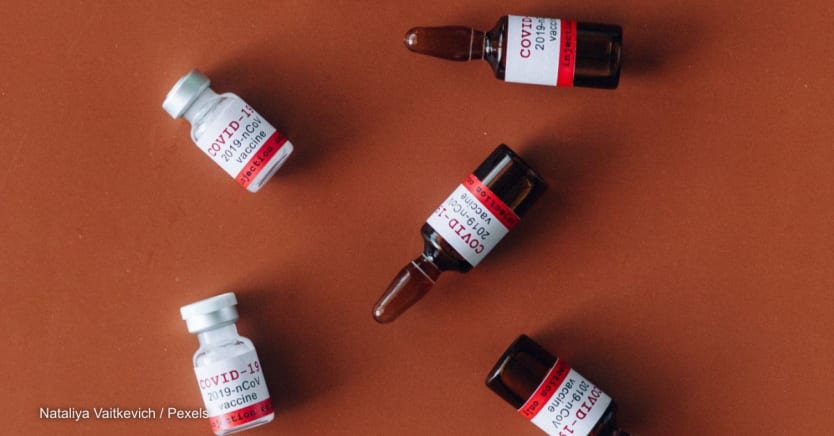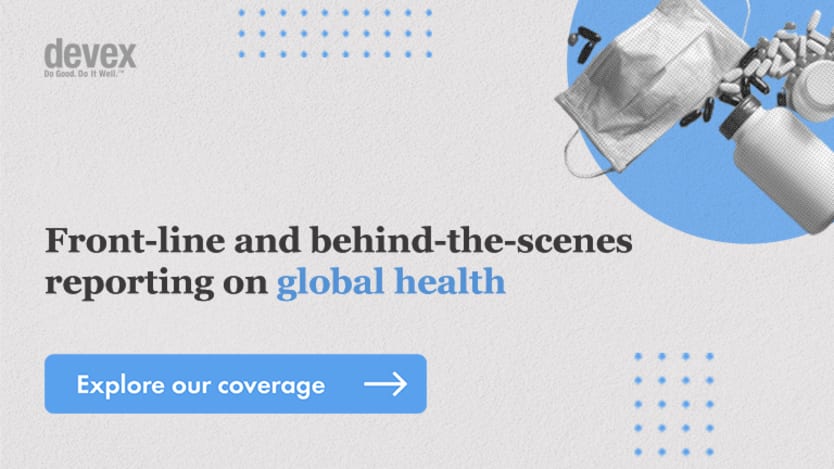
As the debate over the issue of temporarily waiving intellectual property rights for products that would protect, contain, and treat COVID-19 continues, experts remain divided on the feasibility of the waiver — while some say its reach is limited, others have said it’s the need of the hour.
Speaking at a Devex event on the sidelines of the 74th World Health Assembly, lawyer and IP rights activist Ellen ’t Hoen said that the failure of the COVID-19 Technology Access Pool, also known as C-TAP, is the reason developing countries are now demanding more forceful measures in the form of IP waivers.
Sign up for Devex CheckUp
The must-read weekly newsletter for exclusive global health news and insider insights.
“The double no position — of rejecting the C-TAP and the TRIPS waiver — those are not positions which will be tenable in the future,” Hoen said.
India and South Africa originally introduced the proposal for a TRIPS waiver at the World Trade Organization in 2020 — and earlier this month, it got a shot in the arm when the U.S. government announced its support.
However, Thomas Cueni, director general at the International Federation of Pharmaceutical Manufacturers & Associations, was of the opinion that technology transfer on a large scale for COVID-19 vaccines is already happening.
“We have seen 280 contracts signed between big pharma and biotech, and industrialized and developing country manufacturers. More than 200 of them include technology transfer ... It was done with the common objective: [that] we need to vaccinate the world,” Cueni said.
The fickle nature of COVID-19 vaccine agreements
Countries are learning that signed contracts with companies for COVID-19 vaccines, do not necessarily lead to the promised doses.
“By and large, the challenges and complexity of vaccine manufacturing were hugely underestimated and still are. The waiver as such wouldn’t do anything to address the bottlenecks that we have,” he added.
What happens next? Calling for solidarity to address vaccine inequity, Cueni said, “If you really want to get something done now, you really have to get rich countries to start sharing doses — now and not in four to five months’ time when everybody in the U.S., Europe, and the U.K. is vaccinated.”
Acknowledging that there are regions in the world where there is little or no vaccine manufacturing capacity, Hoen said, “Of course you cannot ask to transfer technologies to areas where there’s no one to receive it. But it does say something about how unprepared the world was for this pandemic.”
Moving forward to prepare for the future, Hoen called for the need to address the issues of financing innovation, the sharing of knowledge, and investments in manufacturing capacity — “For that, we need all hands on deck,” she said.









